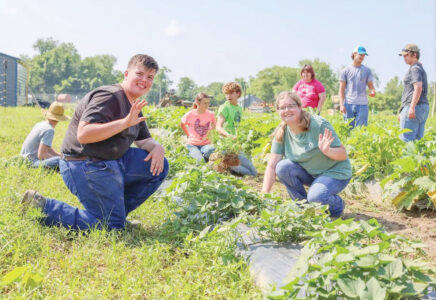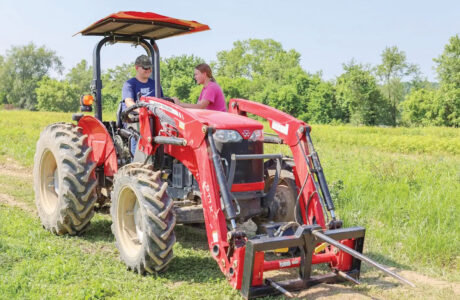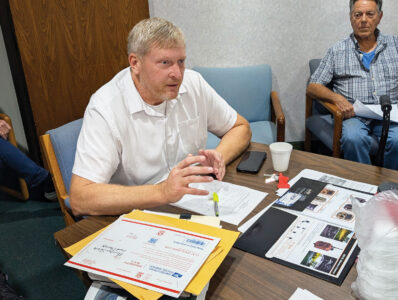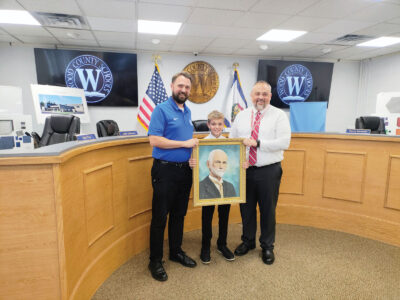WVUP’s Farm to School Agrication program cultivating more than just crops
- Aaron Russell, left, and Rae Strother, right, pick vegetables out of the crop garden during the Farm to School Agrication program at West Virginia University at Parkersburg’s Riverhawk Farm. (Photo Provided)
- Kenzie Lucas, right, reinforces what she learned driving a tractor by explaining to Will Carpenter how to operate it during the Farm to School Agrication program at WVU Parkersburg’s Riverhawk Farm. (Photo Provided)
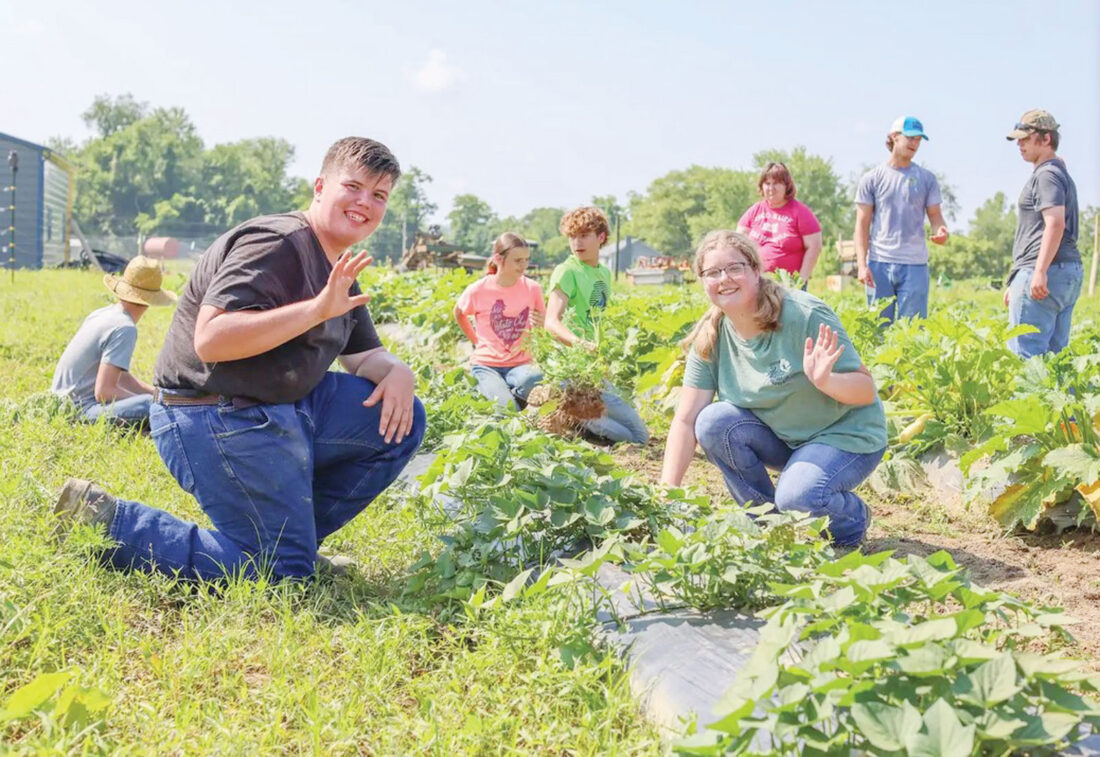
Aaron Russell, left, and Rae Strother, right, pick vegetables out of the crop garden during the Farm to School Agrication program at West Virginia University at Parkersburg’s Riverhawk Farm. (Photo Provided)
From staff reports
PARKERSBURG — A hands-on farm-to-school program at West Virginia University at Parkersburg is paying students to get their hands dirty while learning
The Farm to School Agrication program introduces teens to the world of agriculture, including soil science, sustainability, animal care, food systems and farm management. Agrication is offered to students in grades nine through 12 who are paid for their work.
“What really sets Agrication apart is that it blends hands-on workforce training, real-world farm operations and personal development,” said Jesse Jameson, Agrication coordinator. “Students aren’t just exposed to agriculture. They’re gaining industry-relevant experience that prepares them for future careers while also building responsibility, teamwork and problem-solving skills.”
Through two-week summer rotations, students work and learn on the Riverhawk Farm. They can earn up to $650 for completing their session.
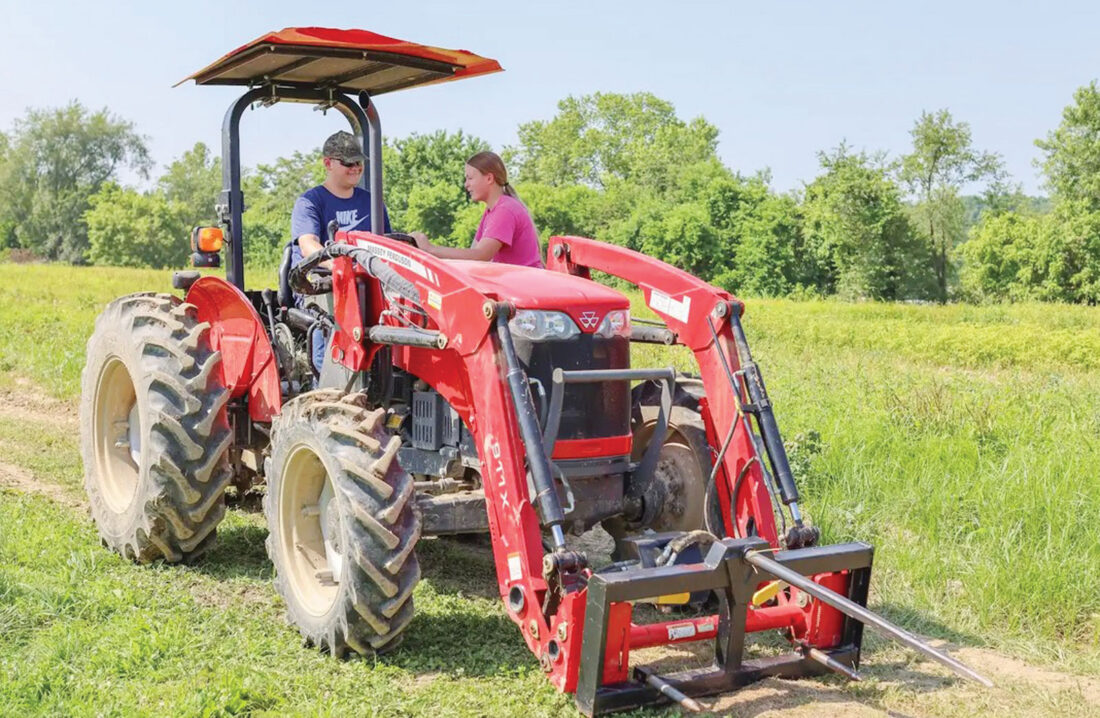
Kenzie Lucas, right, reinforces what she learned driving a tractor by explaining to Will Carpenter how to operate it during the Farm to School Agrication program at WVU Parkersburg’s Riverhawk Farm. (Photo Provided)
“We do a little bit of lecture in the classroom, but mostly it’s hands-on work out in the fields,” said Shaley Hughes, program coordinator. “We try to start with the cattle in the morning – brushing, feeding – then hit the garden early before the heat sets in. After lunch, it’s whatever needs doing.”
Students learn to drive tractors, use equipment, care for crops and work with animals, she said.
Besides pulling weeds and harvesting vegetables, students are learning about nutrition, sustainability and the power of food to support a healthier community. From identifying helpful pests to removing diseased leaves and preparing produce for use or donation, every task is intended to tie back in to the bigger picture of food security.
“Riverhawk Farm and the Agrication program don’t just teach farming. They grow food, grow people and grow community resilience,” Jameson said. “By producing fresh, local food; training the next generation of agricultural leaders; and supporting schools and families, we’re directly addressing food security challenges in the Mid-Ohio Valley.”
On one day before going outside to the farm, students discussed which insects help the garden and which ones hurt it, Hughes said.
“Then they went out and saw it firsthand,” she said. “That kind of learning sticks.”
Freshman Rae Strother agrees.
“I came here with no experience, but Shaley and Jesse have taught me so much,” she said. “Everyone here has. It’s really hands-on and more fun than I expected.”
For many, it’s their first job. For others, it’s the first time they’ve considered farming as a future. And for a few, it’s just a great excuse to be outside and off their phones.
“I really like agriculture, and the money wasn’t a discouragement at all,” freshman Aaron Russell said. “I think I’d like to be a park ranger. That would be kind of fun.”
Strother wants to be a nurse, “but this program made me think about agriculture as a real option, too,” she said.
Student-harvested produce supports a WVU Extension initiative that provides 30 residents with $25 of fresh vegetables, recipes, samples and nutrition guidance each week. The farm-to-school approach also is connected with local county schools, FFA and 4-H chapters, and works closely with the West Virginia Department of Education and WVU Extension agents to link fresh produce to school meals and mock farmers markets.
In the next few years, WVU Parkersburg hopes to expand the program to reach more students year-round, introduce participants to its associate of applied science in agribusiness degree and develop new certifications in value-added production, culinary agriculture and ag technology.
“Our dream is to see Agrication become a regional model for experiential agricultural education,” Jameson said. “We want to expand student access, strengthen career pathways and increase our community impact, all while preparing youth for the future of agriculture through innovative and sustainable practices.”

